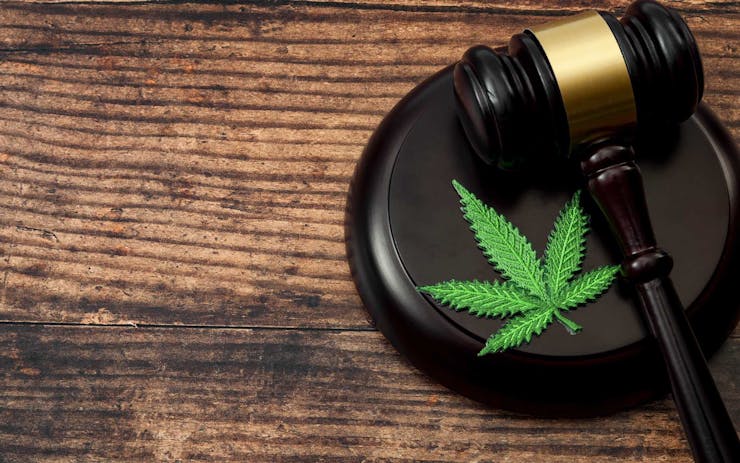Last month South Dakota became one of the latest states to legalize both medicinal and recreational use of marijuana. Fifty-four percent of the state’s voters approved Constitutional Amendment A, the adult-use legalization measure, while a medicinal marijuana initiative was approved by nearly 70%. Both measures are scheduled to take effect on July 1, 2021.
Despite those significant victories, however, a faction within the state government is looking to overturn those results and resurrect cannabis prohibition in the Mount Rushmore State.
In late November Kevin Thom, the Sheriff of Pennington County, the second-most populous county in South Dakota, along with state Highway Patrol Superintendent Rick Miller, filed a lawsuit to throw out Amendment A.
And according to the Rapid City Journal, South Dakota Governor Kristi Noem—a vocal opponent of both cannabis and hemp legalization in her state—approved the use of state funds to help cover Miller’s legal fees.
Trying the Nebraska ploy
At issue is a clause within South Dakota’s state constitution, which holds that a constitutional amendment must involve only one subject. In their lawsuit, Thom and Miller argue that Amendment A “proposed a drastic revision to the Constitution that could not be proposed…because it addressed multiple subjects and purported to add an entirely new article to the Constitution.”
The lawsuit alleges that Amendment A was therefore “void at its inception and could never be ratified by South Dakota voters.”
A similar “one subject” strategy was successfully employed by Nebraska prohibitionists to knock that state’s medical legalization measure off the Nov. 3, 2020, ballot. In that case, the Nebraska State Supreme Court invalidated the proposed state constitutional amendment in early September, nearly two months prior to the vote.
‘Respect the will of the voters’
Some supporters of Amendment A are not tolerating this apparent attempt at political sleight-of-hand. A group of South Dakotans, including Randy Seiler, chair of the state’s Democratic Party, along with a former U.S. Attorney, a retired Sioux Falls police officer, and several others filed their own legal brief, demanding that Miller and Thom’s lawsuit be dismissed.
“I think the will of the voters and the will of the people should be respected,” Seiler told the Rapid City Journal on December 4. “That’s the literal definition of a democracy, where people vote and the wishes and the decision of the voters is respected.”
Too late to file this type of challenge?
Michael Card, an associate professor of political science at the University of South Dakota, says those South Dakotans who are paying attention to the controversy are mostly expressing frustration over the political wrangling.
Questions are being asked about who is behind Thom and Miller’s lawsuit, he told Leafly. “As you might expect,” Card said, “in many places the law enforcement community believes that marijuana and other drugs are a gateway to worse drugs.”
And while many South Dakotans might not have the patience to unravel a constitutional dispute, “there’s a vocal minority that thinks, for lack of a better term, that we’re really getting screwed as a state because we’re paying on both ends of this lawsuit.”
Card doubts the law enforcement lawsuit will succeed. “This is actually an election complaint,” he noted. “The time to file that complaint, as our assistant attorney general noted, was before it even got on the ballots, before the ballots were printed.”
Gov. Noem: Some form of legalization will remain
In her annual address on the state budget, delivered on Dec. 8, Gov. Noem made several references to South Dakota’s cannabis controversy. She pointed out a budget provision that she said was related “to the disappointing votes on marijuana at the ballot box this year,” while underscoring what she described as the “significant safety and regulatory costs” associated with both the medical and recreational ballot measures.
In states that have legalized adult-use cannabis, the tax revenue generated by marijuana sales has far outweighed the relatively minor costs of regulating the industry. In Colorado, more than $1 billion in state tax revenue has been realized since the first cannabis stores opened in 2014.
While supporting the lawsuit attacking Constitutional Amendment A, Noem also acknowledged that cannabis legalization in some form would take place in her state. She said South Dakota’s government would “have to present two courses of action—a path forward with both recreational and medical, and a second with just medical.”





